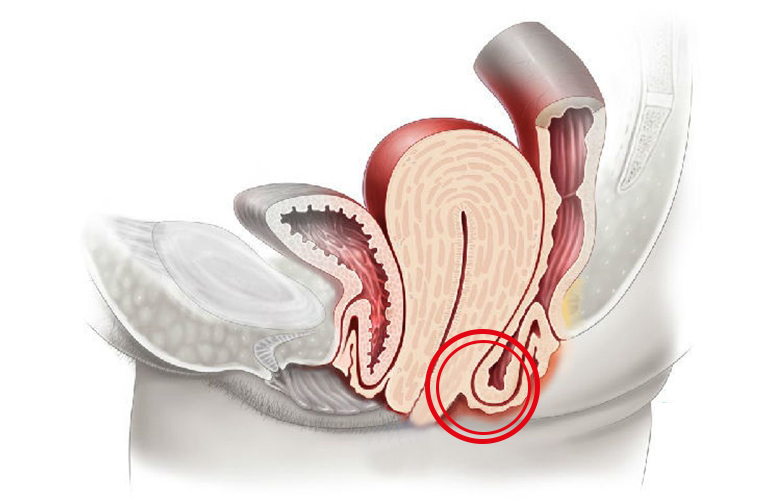Rectocele, commonly referred to as a posterior vaginal wall prolapse, occurs when the thin wall of fibrous tissue separating the rectum from the vagina weakens. This condition allows the rectal wall to bulge into the vaginal canal. Rectoceles are typically caused by childbirth, chronic constipation, or heavy lifting which put prolonged pressure on the pelvic floor.
Rectocele Prolapse
Rectocele prolapse refers to the bulging of the rectum into the vagina due to the weakening of the support tissues between these structures. While smaller rectoceles may be asymptomatic, larger ones can protrude through the vaginal opening and be quite distressing and uncomfortable for women, affecting their daily activities and quality of life.
Rectocele Symptoms
The symptoms of a rectocele vary depending on its severity but commonly include:
A noticeable bulge in the vagina that becomes more apparent when standing up or bearing down.
Difficulty during bowel movements, often needing to press on the vaginal bulge or the area between the vagina and anus to empty the rectum.
Feelings of pelvic pressure or fullness, and discomfort during physical activities or intercourse.
Chronic constipation and the sensation of incomplete evacuation after bowel movements.
Urinary problems, such as stress incontinence or urgency, may also occur as associated conditions.
Rectocele Treatment
Treatment for a rectocele can be conservative or surgical, depending on the severity of symptoms:
Conservative treatments include:
Pelvic floor physical therapy to strengthen the muscles and support the pelvic organs.
Dietary changes to manage constipation, including high-fiber diets and adequate fluid intake.
Pessaries, which are silicone devices inserted into the vagina to support the prolapsed area.
Surgical treatments involve:
Posterior colporrhaphy, where the vaginal wall is tightened to support the rectal wall.
Transvaginal mesh repair, although less common now due to concerns about mesh complications.
Site-specific rectocele repair, which targets specific defects in the rectovaginal septum.
Rectocele Treatment in Turkey
Turkey has become a renowned destination for medical tourism, offering state-of-the-art facilities and experienced surgeons at competitive prices. Patients seeking rectocele treatment in Turkey can expect:
High-Quality Medical Care: Many Turkish hospitals are accredited by international organizations like the Joint Commission International (JCI), ensuring they adhere to high standards.
Experienced Specialists: Turkish surgeons are well-trained and often have significant experience in both conservative and surgical management of pelvic floor disorders.
Cost-Effective: Treatment costs in Turkey are generally lower than in Western countries, making it an attractive option for patients looking for affordable care without compromising on quality.
Comprehensive Care Packages: These often include all aspects of treatment, from initial consultation through surgery to rehabilitation, and sometimes even accommodation and tourism services for recovery periods.
Patients considering treatment in Turkey should research thoroughly, choosing accredited facilities and qualified specialists to ensure the best outcome for their rectocele treatment. It's also advisable to consult with a local healthcare provider to assess suitability for travel and treatment abroad.
